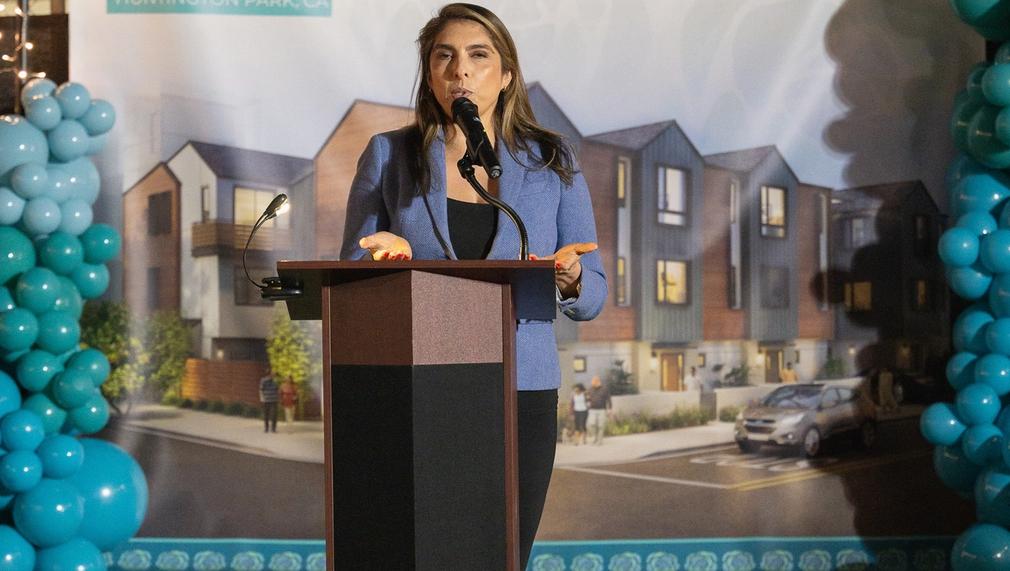Housing Voucher to Homeownership
This initiative aims to support HACLA Section 8 voucher recipients in navigating the path to homeownership by creating a comprehensive, community-informed program model. Through strategic partnerships, financial education, and targeted support services, we will address the systemic and personal barriers that hinder homeownership. Our goal is to develop a scalable, shareable model that can be replicated by other communities to promote long-term housing stability and economic mobility.

What is the primary issue area that your application will impact?
Affordable housing and homelessness
In which areas of Los Angeles will you be directly working?
City of Los Angeles (select only if your project has a citywide benefit) Central LA East LA South LA West LA
In what stage of innovation is this project, program, or initiative?
Research (initial work to identify and understand the problem)
What is your understanding of the issue that you are seeking to address?
Our understanding of the issue is that the Housing Authority of the City of Los Angeles (HACLA) and other Housing Authorities permits Section 8 Housing Choice Voucher recipients to apply their vouchers toward homeownership by using them to help qualify for a mortgage. While this represents an important opportunity for low-income individuals to build long-term housing stability and wealth, the pathway is complex and significantly underutilized due to systemic barriers and coordination challenges. To make this opportunity viable, a multi-stakeholder approach is required—one that involves mortgage lenders, down payment assistance providers, HUD-approved homebuyer education counselors, and the need for a second layer and sometimes third layer of financial assistance to cover affordability gaps. In addition, many voucher recipients face individual challenges such as poor credit, limited financial literacy, and a lack of access to pre-purchase counseling and credit repair services.
Describe the project, program, or initiative this grant will support to address the issue.
The grant will support the research and development of a pilot program aimed at helping Section 8 Housing Choice Voucher recipients in Los Angeles transition into homeownership. Azure Community Development seeks to create a scalable and shareable model that transforms an underutilized policy opportunity into a viable pathway for long-term housing stability and wealth-building. During this phase, we will analyze the ecosystem of key stakeholders—including mortgage lenders, down payment assistance providers, homebuyer education agencies, and credit repair services—to identify the structural and logistical barriers that currently prevent voucher holders from becoming homeowners. We will collaborate closely with the Housing Authority of the City of Los Angeles (HACLA), program participants, and community-based partners to assess challenges ranging from regulatory hurdles to personal financial readiness. The project will result in a detailed feasibility study, a strategic roadmap for service integration, and recommendations for a comprehensive support model that includes financial counseling, layered down payment assistance, and post-purchase guidance. This foundational work will position Azure to launch a future pilot that is both effective and equitable, while also serving as a replicable model for other communities aiming to expand access to homeownership for low-income families.
Describe how Los Angeles County will be different if your work is successful.
If our work is successful, Los Angeles County will become a place where low-income residents—particularly Section 8 voucher holders—can access real pathways to upward mobility through homeownership. Families who have traditionally been locked out of wealth-building opportunities will gain the tools, support, and resources needed to transition from renters to homeowners, fostering greater long-term stability and economic independence. Communities will benefit from increased homeownership rates, which are strongly linked to improved educational outcomes for children, stronger neighborhood engagement, and reduced intergenerational poverty. By aligning housing policy with practical, on-the-ground implementation strategies, our initiative will help shift the narrative from temporary housing assistance to lasting economic empowerment. This approach could serve as a model for expanding equitable access to homeownership across the city, reshaping the housing landscape in Los Angeles.
Approximately how many people will be impacted by this project, program, or initiative?
Direct Impact: 5
Indirect Impact: 100